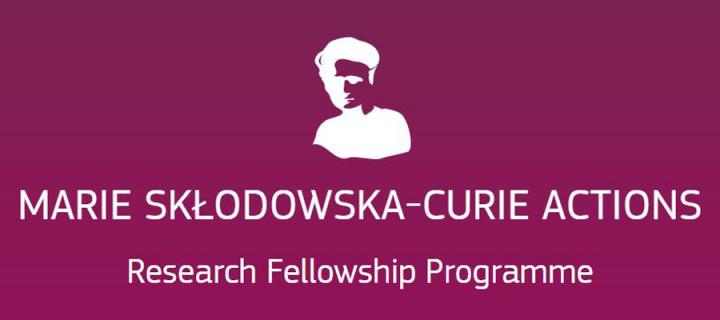European Funding Success
Funding from the European Research Council will enable critical work on nanomedical devices designed to help treatment of cancer and chronic pain.

Congratulations to Dr Maria del Carmen Ortega Liebana and Prof Asier Unciti-Broceta, who were successful with their application for a Maria Skłodowska-Curie Fellowship from the European Research Council. Dr Ortega Liebana currently works in the Institut de Science et d'Ingénierie Supramoléculaires (ISIS) at the University of Strasbourg, France. Her scientific interests focus on a broad spectrum of nanotechnologies and the Fellowship will enable her joining Prof Unciti-Broceta’s laboratory at the Cancer Research UK Edinburgh Centre to undertake research on possible use of gold-nanoparticle-devices in the treatment of localized disorders such as some types of cancer and chronic pain.
Maria Skłodowska-Curie Fellowships are designed to promote Scientific Excellence in Europe facilitating cutting-edge research projects, knowledge exchange and career progression. They are part of the Marie Skłodowska-Curie Actions (MSCA) programme. Grants provided by MSCA are available for all stages of a researcher’s career. Fellows include PhD candidates and those carrying out more advanced research. Because they encourage individuals to work in other countries, the MSCA make the whole world a learning environment. They encourage collaboration and sharing of ideas between different industrial sectors and research disciplines – all to the benefit of the wider European economy. MSCA also back initiatives that break down barriers between academia, industry and business, as well as promote public engagement activities. They also help train the next generation of UK and European researchers in cutting-edge technologies.
A great example of this is the “Bio-orthogonal catalysis for cancer therapy” (THERACAT) consortium training PhD students in novel cutting-edge bioorthogonal catalysis-based tools for biomedical applications. The consortium, funded as part of the Marie Skłodowska-Curie Innovative Training Networks, includes Prof Unciti-Broceta and colleagues from six universities and research institutions from UK (University of Edinburgh), Spain (Institute for Bioengineering of Catalonia), the Netherlands (TUI & University of Groningen), Switzerland (University of Basel) and Israel (Tell Aviv University), three industrial partners (TEVA, BiogelX and Tagworks) and three partners focusing on science communication (CRUK), gender and minorities (UAB observatory for equality) and management and entrepreneurship (ESADE business school).
There is no doubt that over the recent years the CRUK Edinburgh Centre and the wider MRC Institute of Genetics & Molecular Medicine have greatly benefited from the European Research Council funding. With multiple “advanced investigator”, “consolidator” and “starting” grants, as well as Maria Skłodowska-Curie postdoctoral fellowships and other forms of research support totalling over £20 million, European funding is enabling ground-breaking research to take place in the IGMM.
Related Links:
- Professor Unciti-Broceta’s “Innovative Therapeutics” group web page
- Maria Skłodowska-Curie Actions website
- European Research Council website
- Boom-Chemistry website
- Information about Maria Skłodowska-Curie
- THERACAT website
Examples of research activities linked to the Innovative Therapeutics laboratory:
- Palladium mediated catalysis works in preclinical mouse model
- Synthesis of palladium activated analogue of anticancer drug irinotecan
- Development of new inhibitors of oncogenic receptor tyrosine kinases
- Gold-Triggered Uncaging Chemistry in Living Systems Opens New Frontiers for Cancer Therapy
- ECRC scientists develop new Src inhibitor with unique properties
- Hot article of 2016 and journal cover for Cancer Discovery Unit Scientists

